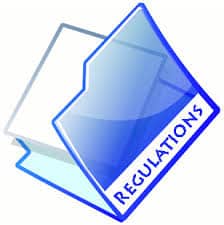January 1, 2018 brought us a new final rule from DOT amending the overall regulation for DOT drug and alcohol testing – 49 CFR Part 40.
We have presented several webinars for this new rule and will present again on Wednesday, January 24 at 11:30 AM ET.
We are also providing very important information for employers to review and to also distribute to DOT regulated employees. Take some time to educate yourself on the new DOT rule and pass on the employee information to your DOT regulated employees:
Important for DOT Employers
Important for DOT Employees
Sample Policy Addendum
National Drug Screening (NDS) offers custom programs for DOT regulated employers for compliance with the 49 CFR Part 40 regulations. As a consortium/third party administrator (C/TPA) we offer many services for DOT regulated employers including random consortium management; random selections; preparation of annual Management Information System (MIS) reports; and coordinating urine collections, laboratory testing, MRO services, alcohol testing, and SAP evaluations.
The new DOT rule affects employers regulated by all the DOT agencies: FMCSA, FAA, FTA, FRA, PHMSA and USCG. Both small and large employers are affected.
Now is the time for DOT drug and alcohol policies to be updated with the provisions of the new final rule. NDS can provide a fully compliant policy to include: a written policy, employee education, supervisor training, access to employee assistance program and drug testing.
The new DOT drug testing panel is still a five panel drug test but the Opiates panel is now called Opioids and now includes codeine, heroin, morphine, oxycodone, oxymorphone, hydrocodone & hydromorphone. Employees with prescriptions for these drugs need to be aware that the drug test results from the Medical Review Officer (MRO) may be reported negative to the employer but the MRO will still have a Safety Concern. The MRO will give the employees 5 business days for the employee to have their prescribing physician contact back the MRO to provide information that the employee has the ability to perform their job in a constant state of alertness, and safe manner; an essential job duty for a DOT regulated employee. This may require a change in medication.
If a driver uses a prescribed drug such as an amphetamine, a narcotic, or any other habit forming drug, the driver is medically unqualified. There is an exception; the prescribing doctor can write that the driver is safe to be a commercial driver while taking the medication. In this case, the Medical Examiner may, but does not have to certify the driver. This may also satisfy a Safety Concern. Any DOT regulated employee with prescribed narcotics should have in advance disclosed to their employer the use of a prescribed drug that could potentially affect their ability to safety perform their job. Documentation from the Medical Examiner and/or prescibing physician will be important when the exception has been made.
Much confusion will occur with the new rule regarding the MRO requirement to give the donor 5 days before reporting a Safety Concern. Many prescribing physicians may be unwilling to contact the MRO back; as they will not understand the ramification to the DOT regulated employee. There is potential of liability if a driver was involved in an accident during the five day period between the MRO negative drug screen report and the MRO report that there is a safety concern.
Ultimately the DOT Employer, under FMCSA 49 CFR Part 391.11, has the final authority to make fitness for duty disqualification determinations for its FMCSA Drivers.







